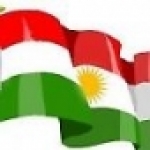The Court finds that the declaration of independence of Kosovo adopted on 17 February 2008 did not violate international law
THE HAGUE, 22 July 2010. The International Court of Justice (ICJ), the principal judicial organ of the United Nations, has today given its Advisory Opinion on the question of the Accordance with international law of the unilateral declaration of independence in respect of Kosovo (request for advisory opinion).
In this Opinion, the Court unanimously finds that it has jurisdiction to give the advisory opinion requested by the General Assembly of the United Nations and, by nine votes to five, decides to comply with that request.
The Court then responds to the request as follows:
“(3) By ten votes to four,
Is of the opinion that the declaration of independence of Kosovo adopted on 17 February 2008 did not violate international law.”
Reasoning of the Court
At the end of its reasoning, which is summarized below, the Court concludes “that the adoption of the declaration of independence of 17 February 2008 did not violate general international law, Security Council resolution 1244 (1999) or the Constitutional Framework [adopted on behalf of UNMIK by the Special Representative of the Secretary-General]”, and that “[c]onsequently the adoption of that declaration did not violate any applicable rule of international law”.
The Advisory Opinion is divided into five parts: (I) jurisdiction and discretion; (II) scope and meaning of the question; (III) factual background; (IV) the question whether the declaration of independence is in accordance with international law; and (V) general conclusion
I. JURISDICTION AND DISCRETION
The Court recalls that, when seised of a request for an advisory opinion, it must first consider whether it has jurisdiction to give the opinion requested and whether, should the answer be in the affirmative, there is any reason why the Court, in its discretion, should decline to exercise any such jurisdiction in the case before it.
It thus first addresses the question whether it possesses jurisdiction to give the advisory opinion requested by the General Assembly on 8 October 2008. Referring in particular to Articles 10, 11, paragraph 2, and 12 of the Charter of the United Nations, the Court observes that the General Assembly “may discuss any questions or any matters within the scope of the . . . Charter or relating to the powers and functions of any organs provided for in the . . . Charter”, and that “the Charter has specifically provided the General Assembly with competence to discuss ‘any questions relating to the maintenance of international peace and security brought before it by any Member of the United Nations’ and . . . to make recommendations”. The Court further observes that the request for an advisory opinion does not contravene the provisions of Article 12, paragraph 1, of the Charter which prohibit the General Assembly from making any recommendation with regard to a dispute or situation in respect of which the Security Council is exercising the functions assigned to it by the Charter. The Court then notes that the question put by the General Assembly “certainly appears to be a legal question” within the meaning of Article 96 of the Charter and Article 65 of its Statute, and concludes from the foregoing that it has jurisdiction to give an advisory opinion in response to the request made by the General Assembly. It points out, in so doing, that the fact “that a question has political aspects does not suffice to deprive it of its character as a legal question” and also makes clear that “in determining the jurisdictional issue of whether it is confronted with a legal question, it is not concerned with the political nature of the motives which may have inspired the request or the political implications which its opinion might have”.
The Court then observes that the fact that it has jurisdiction “does not mean, however, that it is obliged to exercise it”, pointing out that the discretion accorded to it under Article 65 of the Statute whether or not to respond to a request for an advisory opinion exists “so as to protect the integrity of [its] judicial function and its nature as the principal judicial organ of the United Nations”.
After recalling that its answer to a request for an advisory opinion “represents its participation in the activities of the Organization, and, in principle, should not be refused”, the Court notes that it “must satisfy itself as to the propriety of the exercise of its judicial function in the present case” and that it has therefore “given careful consideration as to whether, in the light of its previous jurisprudence, there are compelling reasons for it to refuse to respond to the request from the General Assembly”. First, the Court considers that the motives which lie behind the request for an advisory opinion “are not relevant to the . . . exercise of its discretion whether or not to respond”. Second, it notes that it cannot accept the argument put forward by some of those participating in the proceedings that resolution 63/3 (in which the General Assembly made its request to the Court for an advisory opinion) gave no indication “of the purpose for which the General Assembly needed the Court’s opinion and that there was nothing to indicate that the opinion would have any useful legal effect”. The Court recalls that it “has consistently made clear that it is for the organ which requests the opinion, and not for the Court, to determine whether it needs the opinion for the proper performance of its functions”. Third, it also cannot accept the suggestion of some of those participating in the proceedings that it should refuse to respond on the grounds that its opinion might lead to adverse political consequences.
The Court then considers an issue which it deems “important”, that is, whether it “should decline to answer the question which has been put to it on the ground that the request for the Court’s opinion has been made by the General Assembly rather than the Security Council”. It notes that “[w]hile the request . . . concerns one aspect of a situation which the Security Council has characterized as a threat to international peace and security and which continues to feature on the agenda of the Council in that capacity, that does not mean that the General Assembly has no legitimate interest in the question”. It recalls that “the fact that, hitherto, the declaration of independence has been discussed only in the Security Council and that the Council has been the organ which has taken action with regard to the situation in Kosovo does not constitute a compelling reason for the Court to refuse to respond to the request from the General Assembly”. Further, it adds that “the fact that it will necessarily have to interpret and apply the provisions of Security Council resolution 1244 (1999) in the course of answering the question put by the General Assembly does not constitute a compelling reason not to respond to that question”. It observes in this respect that, while the interpretation and application of a decision of one of the political organs of the United Nations is, in the first place, the responsibility of the organ which took that decision, the Court, as the principal judicial organ of the United Nations, “has also frequently been required to consider the interpretation and legal effects of such decisions”, and that it has already done so both in the exercise of its advisory jurisdiction and in the exercise of its contentious jurisdiction. The Court therefore finds that there is “nothing incompatible with the integrity of [its] judicial function” in answering the question put by the General Assembly.
Full Text:
http://www.icj-cij.org/docket/files/141/16012.pdf?PHPSESSID=7cf0f999fc9…






